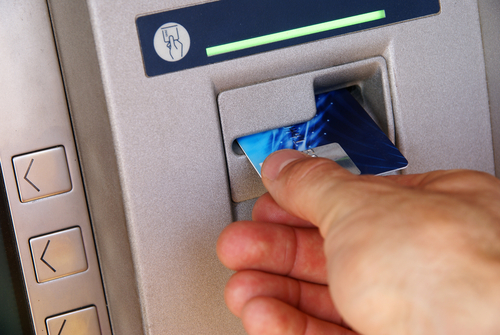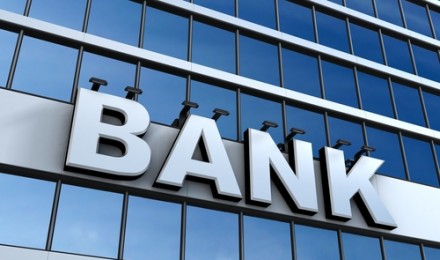When you open a bank account today, the bank will usually issue a debit card also known as an ATM card or “check card”. A debit card looks like a credit card, acts like a credit card but is not a credit card. A debit card withdraws money from your bank account and does not extend you a credit line as a credit card does. Debit cards are convenient, you do not have to carry much cash on you, used properly you only pay what you can afford and there are no interest charges accruing on your purchase.
On the other hand, debit card fees can wreak havoc on your bank account and pile us fees quickly that come right out of your bank account. Here are some tips to help you avoid these high and annoying fees.
- Online banking is safe. Bank security is very good and by signing up for online banking, you can monitor your debit account quite easily.
- Keep a record of your bank balance. An overdraft created by using your debit card is as expensive as a regular overdraft. Use your check register to keep track of your spending. Banks may offer to let you overdraw your account and then charge you an overdraft fee, By federal law you can refuse this service. Overdraft fees can cause other the declining of important checks that are outstanding, creating more fees and antagonizing creditors. Your bank charges a fee for a “returned check” as well as a fee from whoever received the bounced check. Make sure you know your bank’s policy on crediting deposits to your accounts. If they take time to process then the money you think is in your account may not be. Knowing what is in your account at all times is the most effective way to avoid debit card fees. There are many aspects of this law that went into effect in October, 2011 that banks do not like.
- Usually, debit cards connect to checking accounts. However, many banks will allow you to use your savings account as a backup account if you withdraw more money from your checking account than it has. The bank automatically transfers, at no fee, money from your savings account to your bank account to cover your debit card use.
- Many banks will send you a text message or email when your checking account balance hits a pre-determined low balance. The small fee you pay for a text message is well worth avoiding the large fee you pay if you overdraw your checking account.
- When you got your debit card, the bank also gave you a lot of information about debit card fees. Read this information. Some banks charge you a fee for using your debit card. If this is the case, find a bank that does not do this.
- Only use ATMs that your bank owns. Most ATMs other than your own banks will charge you a “convenience” fee that can be more than $3.00. If your bank has no ATM that you can easily access, use your bank debit card for a small purchase such as mints or gum and then use the cash back option.
Debit cards can be convenient for bill paying and making purchases. Users have to be aware of the fees that are associated with debit card usage so that they can take measures to avoid them. These six tips are a great way to start disciplining yourself when using a bank debit card, and you will save money too!
When you open a bank account today, the bank will usually issue a debit card also known as an ATM card or “check card”. A debit card looks like a credit card, acts like a credit card but is not a credit card. A debit card withdraws money from your bank account and does not extend you a credit line as a credit card does. Debit cards are convenient, you do not have to carry much cash on you, used properly you only pay what you can afford and there are no interest charges accruing on your purchase.
On the other hand, debit card fees can wreak havoc on your bank account and pile us fees quickly that come right out of your bank account. Here are some tips to help you avoid these high and annoying fees.
- Online banking is safe. Bank security is very good and by signing up for online banking, you can monitor your debit account quite easily.
- Keep a record of your bank balance. An overdraft created by using your debit card is as expensive as a regular overdraft. Use your check register to keep track of your spending. Banks may offer to let you overdraw your account and then charge you an overdraft fee, By federal law you can refuse this service. Overdraft fees can cause other the declining of important checks that are outstanding, creating more fees and antagonizing creditors. Your bank charges a fee for a “returned check” as well as a fee from whoever received the bounced check. Make sure you know your bank’s policy on crediting deposits to your accounts. If they take time to process then the money you think is in your account may not be. Knowing what is in your account at all times is the most effective way to avoid debit card fees. There are many aspects of this law that went into effect in October, 2011 that banks do not like.
- Usually, debit cards connect to checking accounts. However, many banks will allow you to use your savings account as a backup account if you withdraw more money from your checking account than it has. The bank automatically transfers, at no fee, money from your savings account to your bank account to cover your debit card use.
- Many banks will send you a text message or email when your checking account balance hits a pre-determined low balance. The small fee you pay for a text message is well worth avoiding the large fee you pay if you overdraw your checking account.
- When you got your debit card, the bank also gave you a lot of information about debit card fees. Read this information. Some banks charge you a fee for using your debit card. If this is the case, find a bank that does not do this.
- Only use ATMs that your bank owns. Most ATMs other than your own banks will charge you a “convenience” fee that can be more than $3.00. If your bank has no ATM that you can easily access, use your bank debit card for a small purchase such as mints or gum and then use the cash back option.
Debit cards can be convenient for bill paying and making purchases. Users have to be aware of the fees that are associated with debit card usage so that they can take measures to avoid them. These six tips are a great way to start disciplining yourself when using a bank debit card, and you will save money too!







